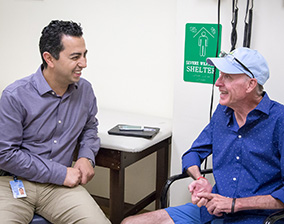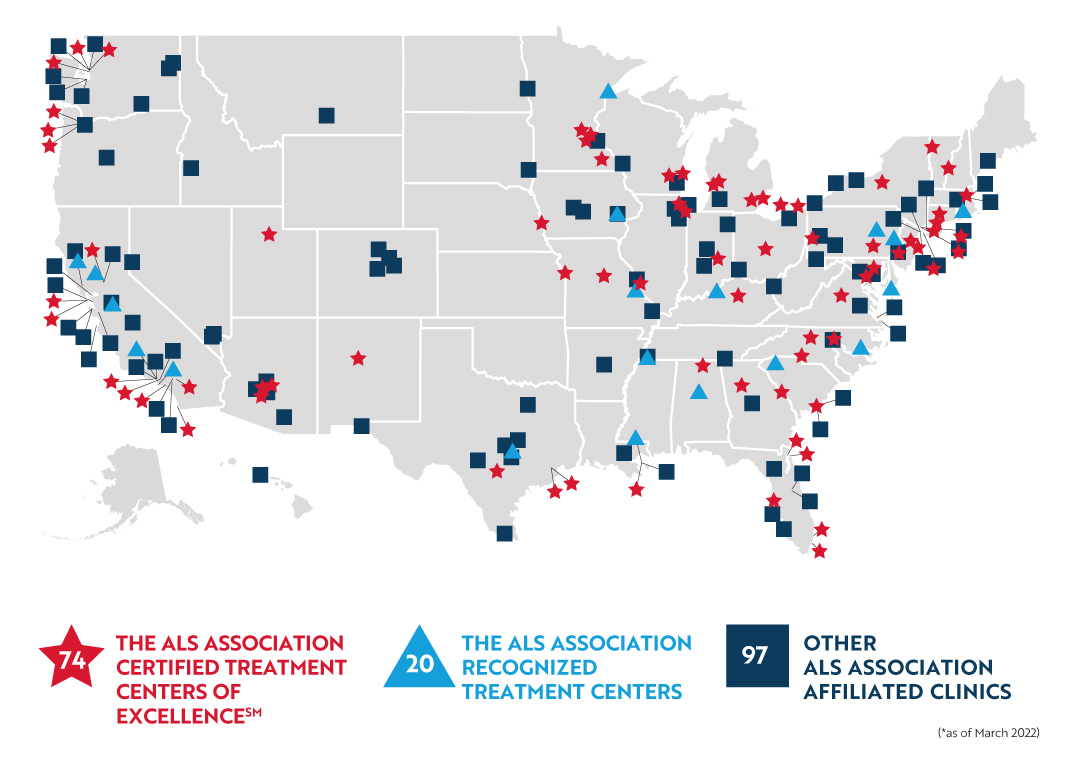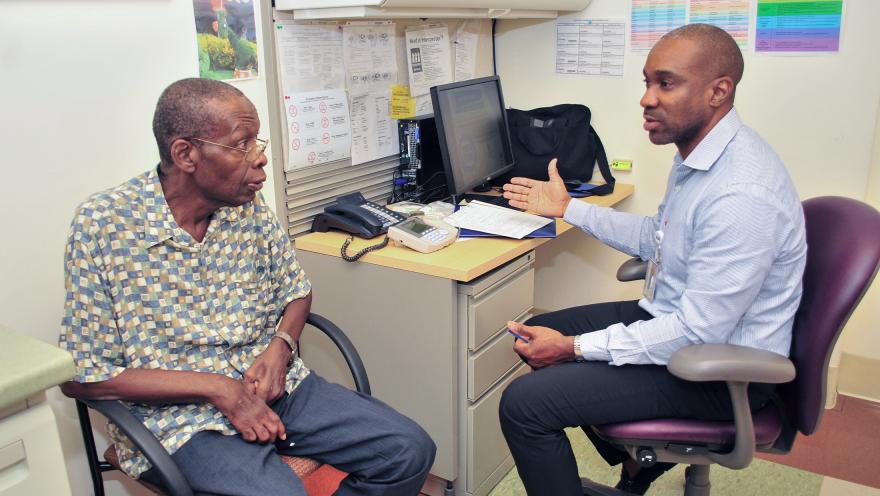The ALS Association is determined to make ALS a livable disease until a cure is found, and access to quality multidisciplinary care is key to making that a reality. Multidisciplinary care has been proven to extend life, helping people living with ALS maintain independence longer and enjoy improved quality of life when provided with options for symptom management, assistive technology, adaptive equipment, education, care services and emotional support.
“Multidisciplinary care is so key to the quality of life for people living with ALS and their families,” says Lori Banker-Horner, senior director of clinical programs at The ALS Association. In her role, Lori works with Association chapters and clinics around the country forming clinic relationships, guiding ALS clinics through the process toward certification or recognition, and sharing new ideas and best practices from clinic to clinic. “These partnerships are vital for the ALS community and the families we serve.”

Based on the American Academy of Neurology (AAN) practice parameters established in the late 1990s, our multidisciplinary care model brings together a team of specially-trained health care professionals who can address the many needs of people living with ALS, allowing them to receive care from each discipline during a single visit. The care team typically includes a neurologist, physical therapist, occupational therapist, respiratory therapist, nurse, dietitian, speech language pathologist, social worker, mental health professional and an ALS Association liaison.
The Association’s clinic network of Certified Treatment Centers of Excellence and Recognized Treatment Centers and affiliated clinics continues to grow, providing evidence based multidisciplinary care to people living with ALS throughout the US. Since the beginning of the year, two new clinics have received the designation as ALS Association Certified Treatment Centers of Excellence, with more than 25 clinics already working through the process toward achieving their formal designation.

“The difference between the certified centers and recognized centers is the addition of the research component at certified centers which often allows people with ALS to participate in clinical trials along with other types of ALS research,” says Lori. “Each clinic must meet stringent requirements and participate in a rigorous process including a site review, and detailed annual reporting to maintain their designation. We work closely together with each clinic throughout the entire process. It's a really valued program and we always want to keep the highest level of integrity.”
Dr. John Novak, a neurologist and medical director at OhioHealth, an ALS Association Certified Treatment Center of Excellence in Columbus, Ohio, weighed in on a recent blog. “I also feel multidisciplinary care can refer to caring for patients not only in clinic, but also out in the community,” he said. “Education groups, wellness programs and a link to community resources can be just as important for our patients and their caregivers or family. Partnering with The ALS Association helps to achieve this goal and gives patients a link to support between clinic visits.”
Dr. Novak started his multidisciplinary clinic in 2012 with the goal of improving care for people living with ALS and their families. “Glad to keep up the work and greatly appreciate our partnership with The ALS Association,” he said. “The Association always does such a wonderful job for patients across the country, but our Chapter has been fantastic in the support they give. I am very fortunate to have both a wonderful clinic staff and such dedicated ALS Association partners.”
“I'm just really pleased to see where we're going with the program and the opportunities that we have to really expand access to care, which is so important in increasing quality of life and extending life expectancy for people living with ALS,” said Lori. “And that's key and that's our mission.”
To learn more about multidisciplinary ALS care and The Association’s Certified Treatment Centers of Excellence and Recognized Treatment Centers Program, visit our website HERE. To continue to learn more about the disease and follow stories about people living with ALS in the community, subscribe to receive our weekly blogs in your inbox or follow us at als.org/blog.
To learn more about multidisciplinary ALS care from Lori Banker-Horner, listen to her full interview, Expanding Access to Care, HERE on Connecting ALS on January 6, 2022.


Comments
My husband Sekar Sonachalam is living with ALS since 2015. We, family members are taking care of his needs. We are looking for certified care givers services in WA who can come home for few hours per day to help in his needs, like giving bath, feeding, etc. Can you please share any links, contact numbers and any other details?.
Thanks,
K.Shantha
Hi. So sorry to hear that ALS has touched your life. Please reach out to your local ALS Association chapter. They can provide recommendations for your area. Find their contact information at als.org/chapters
Join the conversation. Please comment below.